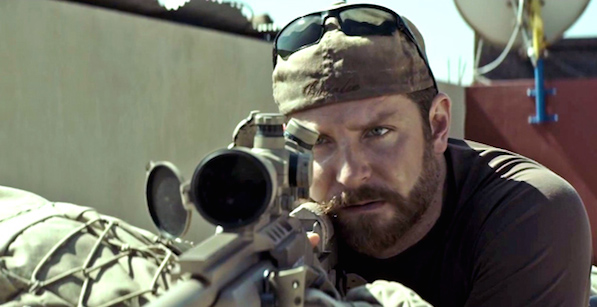
[Editor’s note: This is the third entry in our ‘Video Evidence’ series on the Oscar race. For the complete list of ‘Who Really Deserves to Win’ essays, visit our Oscars 2015 landing page.]
I’ll say it out front: I am not a fan of when actors use prosthetics. It often strikes me as a cosmetic stunt that detracts from what an actor brings to the role on the inside. Actors tend to resort to this trick when they are playing against type, as Steve Carrell (51 minutes; 42% screentime) does in Foxcatcher.
There’s definitely a shock value in seeing a great comic actor playing a scary, quietly domineering millionaire who runs a wrestling camp. Carrell’s main tactic is a blue blood speech pattern that’s marked by awkward pauses, clearly going for an effect of ominous ambiguity. But once you get past the novelty factor, this performance feels more like a costume collection of affectations instead of an organic character.
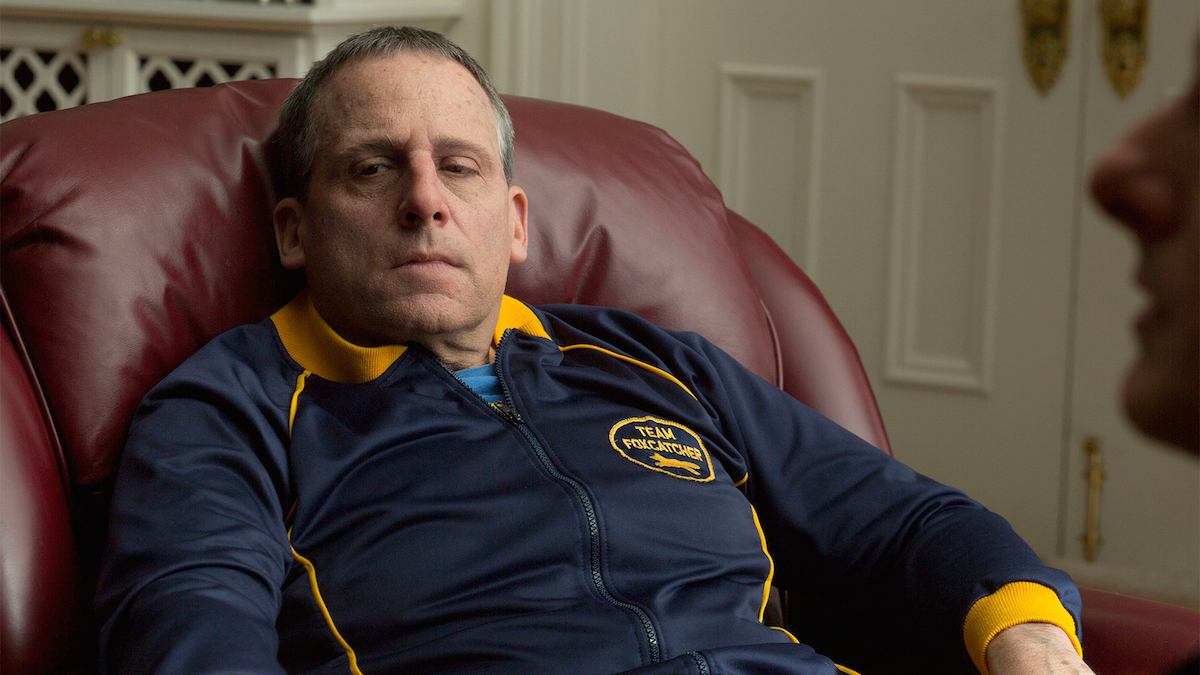
Carrell may be trying a little too hard to transform himself, while Benedict Cumberbatch (77 mins; 71% screentime) in The Imitation Game seems like he’s not trying hard enough. Playing the brilliant but aloof engineer Alan Turing, Cumberbatch seems to rely heavily his own natural charisma to make us connect with his character, leading to one of the gentlest, politest assholes in recent movies. With his puppy dog eyes and floppety hair, his performance feels like it was crafted for teenage girls. But it’s not just on Cumberbatch. We can also blame a dull script and duller direction that leaves Cumberbatch stranded when trying to improve on the material, resorting to stock techniques like nervous eye movements and stammering to make dry expository monologue feel “spontaneous.”
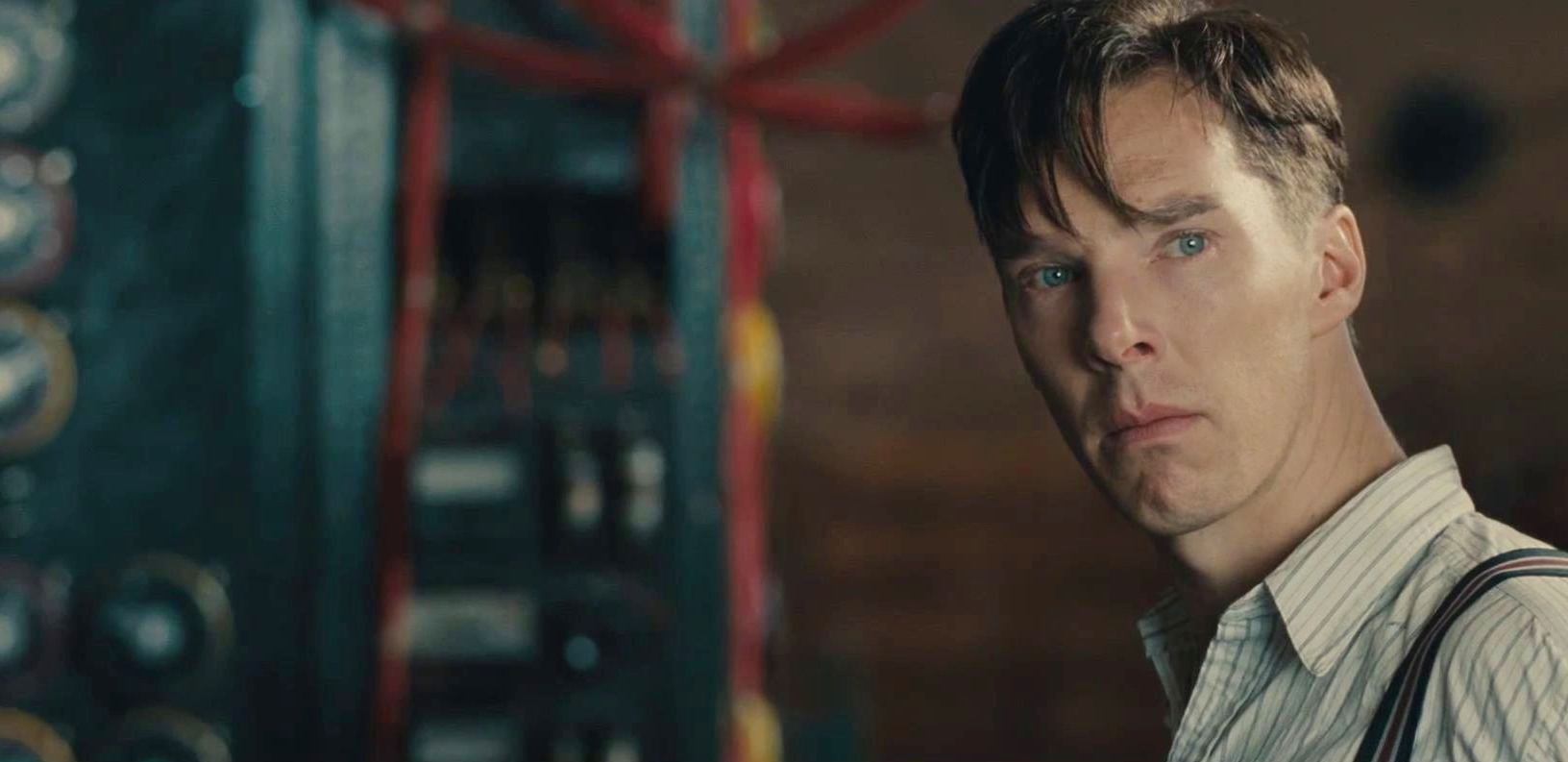
There’s a similar dreamy eyed charm in Eddie Redmayne’s (73 mins; 62%) version of Stephen Hawking in The Theory of Everything. It’s in line with a film whose overall design is even more cutesy-wutesy than The Imitation Game. It’s hard to take a performance seriously amidst warm and fuzzy cinematography borrowed from BBC soap operas. But the more I focus my attention on Redmayne, the more I admire the studied physicality of his performance. Maybe it’s become a cliché that we award actors when they play disabled characters. But his steady deterioration is something to behold, ultimately leaving him to rely almost entirely on his eyes to express the shifts in his mood. In the scenes that matter most, he does far more than settle on being charming.
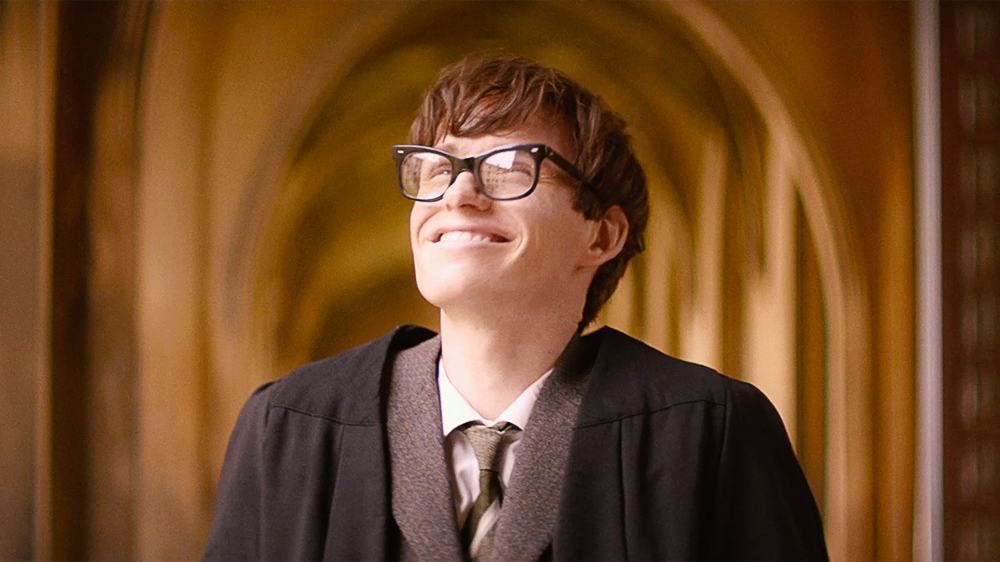
If Redmayne’s work is hampered by mediocre filmmaking, Michael Keaton (82 mins; 75%) gets a huge boost from the virtuoso cinematography of Birdman. Keaton’s robust physical performance amounts to an elaborate dance between him and the camera. And some of the best things about his performance are due to the camerawork: the way it captures the wrinkled texture of his face, or winds around him during his manic, nearly naked romp through Times Square. The character he plays is not particularly complex to begin with, a washed up, self-absorbed action star prone to tantrums, fights and ridiculous flights of fancy. But Keaton’s full-bodied commitment enables us to laugh at this cartoonish character and still feel the genuine desperation that’s driving him.
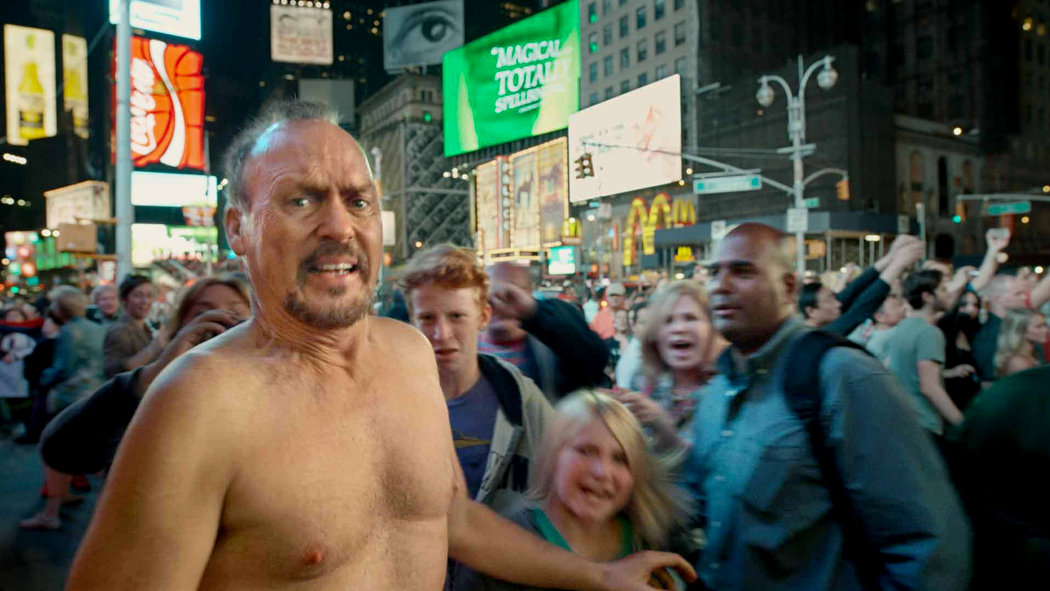
Bradley Cooper (77 mins; 62%) plays a real-life action hero in American Sniper, a film that itself works like a sniper’s viewfinder: powerful and narrow. I don’t appreciate the movie’s chauvinist perspective on the Iraq War, but it is presented forcefully, largely through Cooper’s performance. He embodies a certain American masculine ideal: gifted yet humble, dedicated to performing his duty with excellence. In the film’s first half, he’s a study of pure determination as he proves to be an extraordinary soldier. But as the war grinds on, we see a man overwhelmed by the contradictions of his service, of being celebrated as a hero while there’s so much around him that he can’t save. Cooper plays his part with a casual deadpan that starts off as a sign of steely nerve, but eventually becomes a mask for a nagging sense of failure. The steady buildup of anxiety in his eyes gives a crucial undertow of meaning to a movie that might otherwise come off as rabble-rousing patriotism.
I’m torn between these two exceptionally complex performances that seem to work in opposite ways. Keaton takes what is basically a two-dimensional jerk and gives him sympathetic depth. And Cooper brings layers of darkness to a hero’s facade. In the end, the advantage goes to Keaton, because he has so much coming at him that he has to navigate, and not just scene by scene, but second by second. And it makes every moment of this performance worth watching closely.
Kevin B. Lee is a filmmaker, critic, video essayist and founding editor of Keyframe. His video essay Transformers: The Premake will screen at the International Film Festival Rotterdam and the Berlinale International Film Festival Critics’ Week. He tweets at @alsolikelife.


